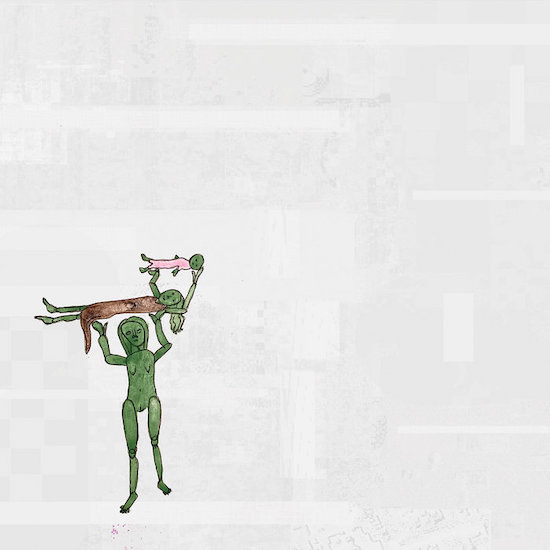Wobbly’s new album Additional Kids is a carnival tumbling out of a glitch. Opener ‘Not Home’’s digital junkyard groove ends in a joyful call and response between vocalist Mai Lingani and cascading electronics. The title track sounds like a deranged reimagining of the Inspector Gadget theme, complete with a choir of strange voices singing: “If you don’t have a child with me, I’ll consider you a murderer”. ‘White Eggs (with Ana Machado)’ is hyperactive machine reggaeton. The record’s perpetual discombobulation is uncanny, if the uncanny were lifted out of horror discourse and applied to contexts more flamboyant. Hooks appear among atonal sonics and vice versa, weighty grown-up themes emerge among cartoonish instrumentation. Its extremes are unsettling, but that sense of disturbance sparks the record’s joy.
Started in the 2000s and then finished in the 2020s, the album is described as a “multi-generational album about generations,” written from the perspective of people questioning whether to have children, and the consequences of those decisions decades later. Occasionally coming up explicitly, that theme often feels more a McGuffin for Additional Kids’ real mission: a wholesome quest to prove that everything from abstract sound to key life decisions can be rewired into gleeful absurdity.
On ‘The Hospital’, DemonSleeper turns twinkling synth gospel into a panicked contraction, belting out “There’s a light inside of me and I need you to take it out.” ‘Resignation (with Dominique Leone)’ isn’t a million miles away from Yes, if the prog band wrote glitch ballads reminiscing on a lifetime of online gaming. Where Wobbly, aka Jon Leidecker’s Popular Monitress from 2021 harnessed phone apps to create kaleidoscopic symphonies, Additional Kids brings that unpredictable energy to working with vocalists. The result is experimental pop where the fun begins rather than ends when the experiments start.
The album sits on a through-line from Pierre Henry and Michel Colombier’s Messe pour le temps présent via Residents and Negativland’s surreal polemics, into what contemporary practitioners of highly colourful experimental music such as Matmos have done with club adjacent sounds. Indeed, Leidecker is a member of Negativland and has collaborated previously with Matmos. Messe pour le temps présent (1967) was a ballet soundtrack, most well-known for ‘Psyché Rock’, a hugely influential track remixed by Fatboy Slim and direct inspiration for the Futurama theme tune. It saw ideas from Henry’s work as a pioneer of musique concrète applied to groovier settings. In doing so, it unearthed funkier possibilities in glitching, found and abstract sounds. Wobbly continues these radical yet jovial possibilities in experimental and pop music on Additional Kids.
The record works because its off the wall sound design and audacious songs don’t feel oblique, but come off rather as if propelled by a warm-hearted sense of ridiculous adventure. Additional Kids is a celebration of the brilliance to be found in ludicrousness.


